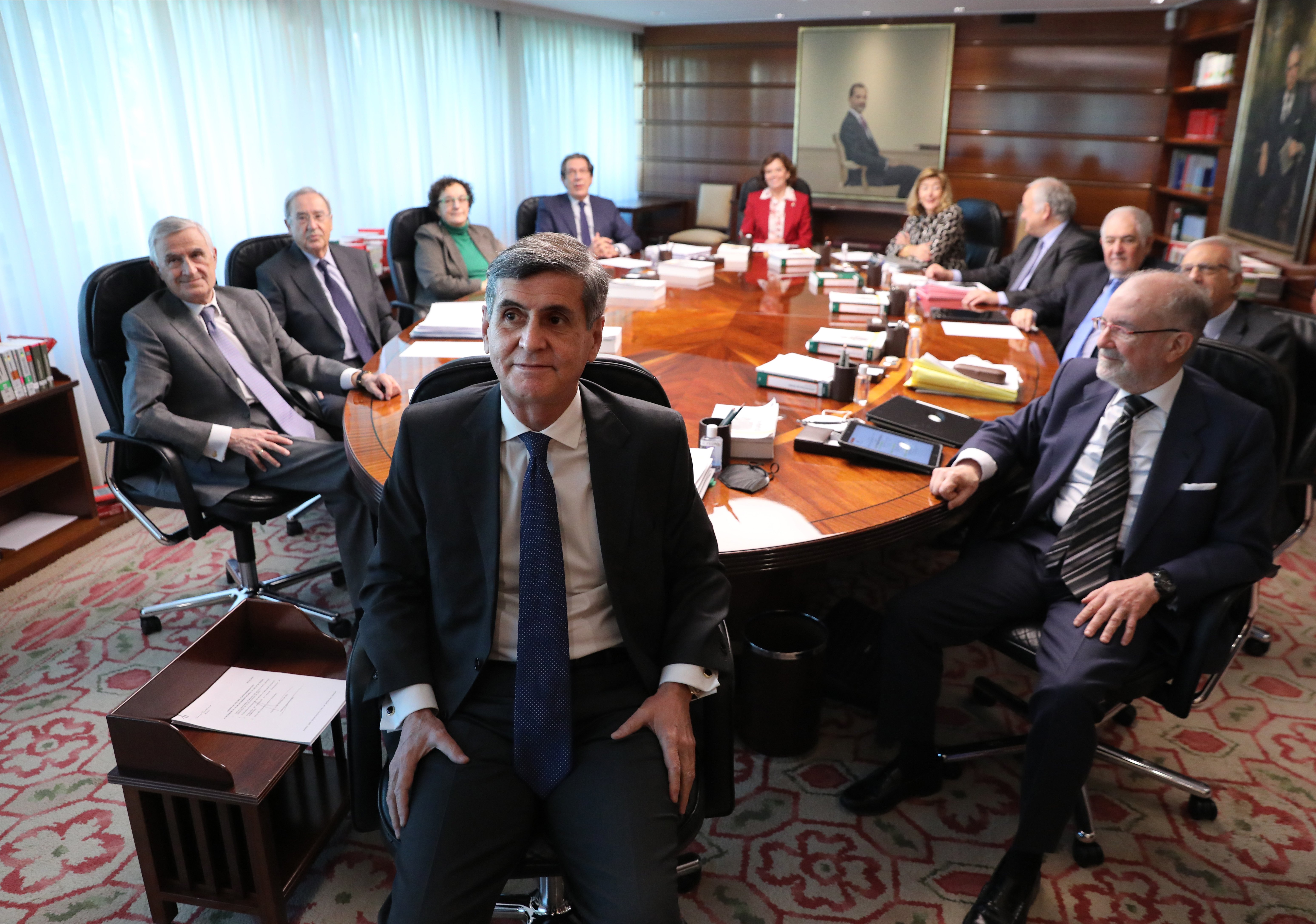The Spanish Constitutional Court has called an extraordinary plenary meeting for this Thursday, December 15th, at 10am. And it will discuss an extraordinary question. The meeting, announced urgently by court president Pedro González-Trevijano just hours ahead of time, has been called to consider whether the constitutional judges will admit the opposition People Party's appeal to stop the Spanish government's reform of the Constitutional Court itself, intended to break the deadlock on renewal of its membership. The gravity of this decision comes from the fact that this very Thursday the Spanish lower house, the Congress of Deputies, is scheduled to vote on the first parliamentary stage of this reform.
With this decision, the Constitutional Court will decide whether it should consider the argument of the PP, which also acted at the last minute this Wednesday to present its appeal to stop the court reform. The Congressional spokesperson for the PP, Cuca Gamarra, has affirmed that her party has presented "the first" of several appeals that it will submit to the court. She assured that "the objective" of the Spanish government is "to control the Constitutional Court, which they need to do so that the referendum that has been talked about so much in recent days can be held". The PP's request is for the court to overturn the reform on an urgent interim basis, which means without hearing the argument of the other party, who, in this case, is the Spanish government. Faced with the haste of the Constitutional Court president to call the urgent plenary, everything points to the outcome of Thursday morning's session being the suspension of the reform before it is passed.
The Spanish government's reform
At the beginning of December, the PSOE and Unidas Podemos presented two amendments to the reform of the Penal Code, which was already underway, to end the deadlock in the Constitutional Court and the General Council of the Judiciary (CGPJ), which contain conservative judges whose mandates have expired and who have entrenched themselves in these organs. In addition, the PP has refused to reach agreement with the PSOE on proposing new candidates, even when Carlos Lesmes finally submitted his resignation from the presidency of both the Supreme Court and the judicial governance organ.
The first amendment is intended to reform Spain's 1985 Law of the Judiciary to change the three-fifths majority required in the CGPJ over the election of the two Constitutional judges that it is required to choose every three years, to establish a new system by which the two judges who get the most votes will be appointed. The amendment includes a reworded article to ensure that, within five working days, "the members of the Council can recommend to the presidency candidates to be judges of the Constitutional Court", with a maximum of one candidate nominated by each member.
The second amendment modifies the 1979 Law of the Constitutional Court so that if after the 9 years and 3 months of the mandate of the judges proposed by the CGPJ and the Spanish government, "one of these two bodies had not made their proposal" - that is, in the case of a deadlock like the current one - "the renewal of the judges" will take place "appointed by the body that has fulfilled its constitutional duty". This ends the debate on whether the renewal process, which replaces a third of the judges every three years - two chosen by the Spanish government and two by the CGPJ - should be done jointly. The need for verification of the new judges by by the Constitutional Court is eliminated.
The plenary session of the Constitutional Court, divided and discredited, must decide this Thursday whether to block this reform that has a frontal effect on it.

